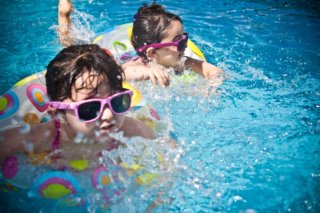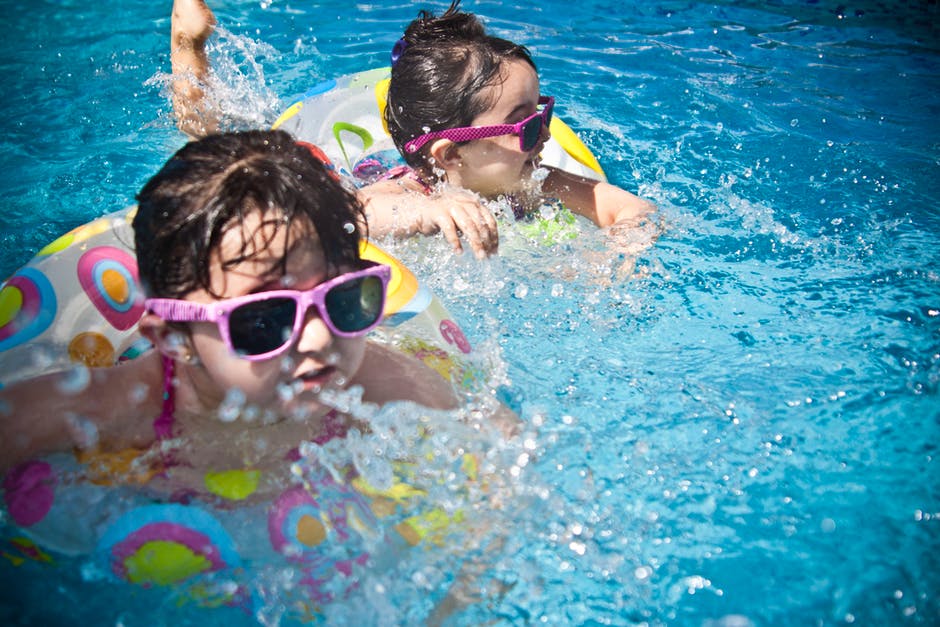Safety Precautions for Swimming Pools in Denver CO
March 6, 2022by Content ManagerBuildPOOL AND SPARepairs
Denver summers are one of the highlights of living in the city. With the highest number of sunny days in all of the United States, having a pool in your backyard can make the summer in Colorado perfect. Wetworks Pool and Spa are here to help you cool off in the summer sun! Private pool ownership is a great responsibility that reaps excellent rewards when safety precautions are respected. Pool safety should always be a homeowner’s number one priority. Please keep reading our top swimming pool safety tips for Denver home swimming pool owners. Ready to build your own custom pool? Click to find out about our custom pool building services in Denver.

Top Swimming Pool Safety Tips
A pool is a lot of fun! Backyard swimming pools can be a welcomed relief to the summer heat, a great way to exercise, or a place to relax. Safety precautions should always come first, no matter your use of the pool. Whether you are a guest at a pool, using a shared community pool, or are an at-home swimming pool owner in Denver, we recommend making yourself aware of the safety rules of each swimming pool upon arrival.
Our Top 7 Swimming Pool Safety Precautions
- Establish Rules
- Learn to Swim
- Supervise Children at All Times
- Install Pool Barriers
- Lightning & Thunder Safety
- Be Prepared
- Take Care of Your Body
Establish Rules
Part of being a responsible pool owner is establishing rules and seeing that they are followed at all times. No matter how many precautions you take, owning a pool can still be dangerous. To minimize your legal risks, in addition to the personal tragedy of a loved one drowning in your pool, be sure to establish and post your pool rules where everyone can see them. You can also share where the rules are posted with each guest as they arrive and ask them to refresh their memory.
Here are some rules you may include in your pool safety:
- Only swim when an adult is present.
- Never swim alone; always swim with someone.
- No diving in shallow pools.
- No running on the pool deck.
- Do not swim while intoxicated.
- No pushing or horseplay.
- No electrical appliances near the pool.
- If someone is in trouble, get help FAST. Post what to do in an emergency.
Spinal cord injuries are no joke. Permanent brain damage or even death can result from diving into shallow water. Above-ground pools are very rarely deep enough to dive into. One should never dive into a pool toy or through an inner tube. Above all, be aware of your surroundings and respect the depth of the pool you are enjoying!
Learn to Swim
Swimming is not only fun, but it is also a lifesaving skill! We always encourage pool owners (and pool enjoyers!) to ensure everyone in their household knows how to swim. Non-swimmers should wear CoastGuard-approved life jackets at all times. A life jacket needs to properly fit the age and weight of the person wearing it. Common blow-up swimming aids or toys are not a proper substitute for a life preserver and should never be utilized as such, especially in open water. Learning to swim will benefit you for years to come, as you feel confident in enjoying different bodies of water. Swimming is excellent exercise and a great reason to build a custom pool in your Denver backyard.
Supervise Children at All Times
In addition to teaching your children to swim, we recommend any children swimming be supervised at all times while in your pool. In the water, toddlers and infants should always be within arm’s reach of the adult supervising them. As children age and gain swimming experience, they can be supervised from further away. The supervising adult should be free from distractions like talking on the phone, drinking alcohol, doing chores, or observing through a window. A child should never be left alone out by the pool. The supervising adult should always know how to swim and perform CPR.
Install Pool Barriers
There are a few different barriers every backyard pool owner can install for added safety measures. Here are a few of our go-to barriers. Any fences surrounding the pool should be at least four feet high and built in such a way that prohibits children from climbing over them (with no hand or footholds to help one climb). Consider where your lawn furniture is placed, making sure it is away from the fence so it cannot be used to climb on. When the pool is not being used, remove or lock ladders to prevent easy access. Keeping toys away from the pool when the pool is not in use to discourage children and neighbors from using the pool without your knowledge is always recommended. Pool alarms and safety covers are other barriers to help protect unsupervised swimmers but are not replacements for a fence.
Double-check your homeowner’s insurance policy to include liability coverage, and take all the required measures to create a safe pool area. Some insurance policies will not cover pools with diving boards or slides and insist that safety measures exist. These policy details may influence your decision.
Lightning and Thunder: “If you can see it, flee it. If you can hear it, clear it.”
Lightning can be unpredictable and random. A conservative approach to water safety should always be taken in terms of thunder and lightning. Someone in your group should always be designated as the weather lookout and frequently check the Weather Channel or radio for local weather updates. Pools are connected to a large surface area via underground water pipes, gas lines, and electrical wiring. This network could induce electric shocks when lightning strikes the ground near a pool. Lightning can strike before the rain so keep an eye on the sky for large cumulus clouds, as they are often the first signs of a thunderstorm. Pool activities should be suspended for at least 30 minutes after hearing thunder.
If you are caught swimming during a storm, get out of the water and find shelter as soon as possible. A good rule of thumb is to count how many seconds pass from the first flash of lightning to the sound of thunder. Thirty seconds or less typically means that you are under 5 miles from the lightning. This is the danger or threat zone, and you should take cover immediately. If someone in your group is struck by lightning, you must help them as soon as possible. Call 911 for guidance and apply first aid to any burns. The heart can stop due to electrical shock, and a trained person should administer CPR as fast as possible.
Be prepared for an Emergency.
While we always hope we do not encounter one, emergencies happen. Drowning is the number one cause of death for children under the age of four, and it is the fifth leading cause of unintentional deaths for people of all ages. CPR classes are recommended for everyone in the household, as are water safety and first aid certification courses.
Rescue equipment should be easily accessible and in good condition for your at-home swimming pool. This includes safety rings, floats, and a reaching pole or shepherd’s hook. In an emergency, directions of what to do could save someone’s life. For the benefit of your guests or babysitter who may not have your address memorized, a laminated poster or sign in the pool area with your address and emergency phone number could come in handy. Yell for help during an emergency, begin CPR, and immediately call 911.
Stay Hydrated While Protecting your Skin
One of the easiest safety precautions you can take during the summer is to drink enough water! The dry, hot summer heat paired with our mile-high status here in Denver makes it imperative to stay hydrated. Dehydration happens quicker at high altitudes, especially when paired with the midday sun. While sweet beverages like juice and energy drinks can be tempting on a poolside afternoon, sugary drinks can leave you feeling extra lethargic or nauseous in the heat. Drinking the recommended eight glasses of water each day is generally a safe bet, but athletes such as swimmers (even if only for a day!) may need more. Dietitians recommend including water-rich foods like watermelon, celery, tomatoes, broccoli, and citrus fruits for summertime snacking to help hydrate the body.
Protecting your skin with 30+ SPF sunscreen will also help prevent dehydration! Did you know severe sunburn and sun poisoning can cause headaches, nausea, and dizziness? Extra fluids will help with these symptoms and boost your recovery. Dermatologists recommend that SPF 30 or above be applied to the skin at least 15 minutes before sun exposure. Choose a broad-spectrum sunscreen (to protect you from both UVA and UVB rays) and water-resistant. Sunscreen needs to be reapplied at least every two hours to be effective immediately after sweating or swimming (sunscreen is water-resistant, not waterproof). Wide brim hats, sunglasses, and clothing add an extra layer of sun protection as well!
Safety is a part of owning a swimming pool in your backyard. We hope that you will feel more confident and prepared to own an at-home pool in your Denver home with these tips. Owning your dream swimming pool is within your reach—peace, love, and SPF.
We are Denver’s Top-Rated Custom At-Home Swimming Pool Builder.


